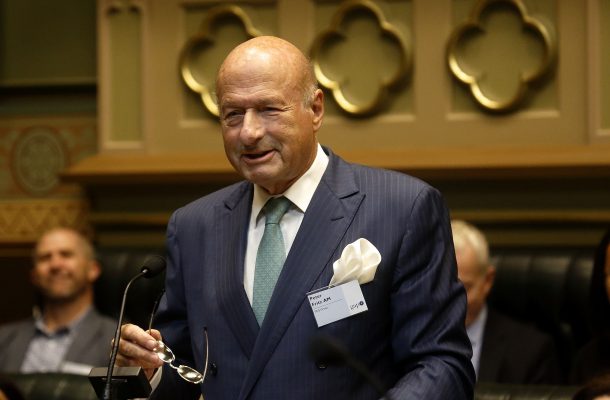Behavioural economics in uncertain times

Peter Fritz AO introduces the new edition of BESS – the Journal of Behavioural Economics and Social Systems published by Global Access Partners.
It is, to say the least, disconcerting to be writing this preface while the COVID-19 health crisis remains in full flow. The pandemic has exposed the myriad interconnections between personal actions, society, the economy and ecology more starkly than in more ‘usual’ times.
Finding a way for communities to flourish within the planet’s capacity to sustain human needs, and creating an economic system that produces sustainable and equitable outcomes, has become an even more crucial challenge for us all.
We were proud to launch our new Journal of Behavioural Economics and Social Systems (BESS) at the GAP 10th Annual Economic Summit at NSW Parliament House in September last year. The Summit discussed the need to retrain people in a changing skills environment and the impact of technology on the future workforce, and the new edition of BESS, out today, continues to explore some of these issues.
Since the release of the inaugural edition, we have welcomed new members to our Editorial Board, increased our international database of contributors and created a social media presence on Facebook, LinkedIn and Twitter.
We have broadened our research agenda beyond behavioural economics to embrace neuroeconomics – a relatively new and exciting field of study at the nexus of economics, psychology and neuroscience that analyses how people make economic decisions, process multiple alternatives and decide their course of action.
BESS is published by Global Access Partners (GAP), an independent non-profit institute for active policy that initiates strategic debate on the most pressing social, economic and structural issues facing
Australia and the world today. GAP is a catalyst for policy implementation and new economic opportunities and, though its Second Track programme, fosters links between community, government and business.
The institute has a proud track record of innovative, multidisciplinary approaches to problem-solving and an alumni network with over 4,000 members. It runs taskforces, forums, workshops, consultative committees, research and feasibility studies, online collaborations, executive consultancies, joint ventures and business missions, both in Australia and abroad.
More than one thousand people are actively engaged in various GAP projects on a regular basis, supported by almost 120 sponsors.
Establishing and publishing a journal involves hard work by many people, and I pay tribute to BESS’ Founding Editor, Dr Peter Massingham, and its Editor-in-Chief, Prof James Guthrie AM, for their inspiration and support. I thank the authors of these papers for their commitment to making this project such a fulfilling and worthwhile endeavour.
I especially welcome our European authors and new members on the Editorial Board. Appreciation is also expressed to the reviewers who graciously gave up their time to provide constructive, insightful and timely advice on this material.
Finally, I commend to you the eight articles in this issue. They examine the Second Track processes through the lens of complexity theory, explore the intricacies of stakeholder management in the commercial and academic sectors, and reflect on adaptive leadership, business strategies and human potential in times of uncertainty.
BESS is available online and in hard copy, and I am looking forward to sharing our next edition with the attendees of the GAP Annual Summit on National Resilience, scheduled for 5–6 November 2020.
Peter Fritz AM is Managing Director of Global Access Partners, and Group Managing Director of TCG – a diverse group of companies which over the last 38 years has produced many breakthrough discoveries in computer and communication technologies. He chairs a number of influential government and private enterprise boards and is active in the international arena, including having represented Australia on the OECD Small and Medium Size Enterprise Committee.








